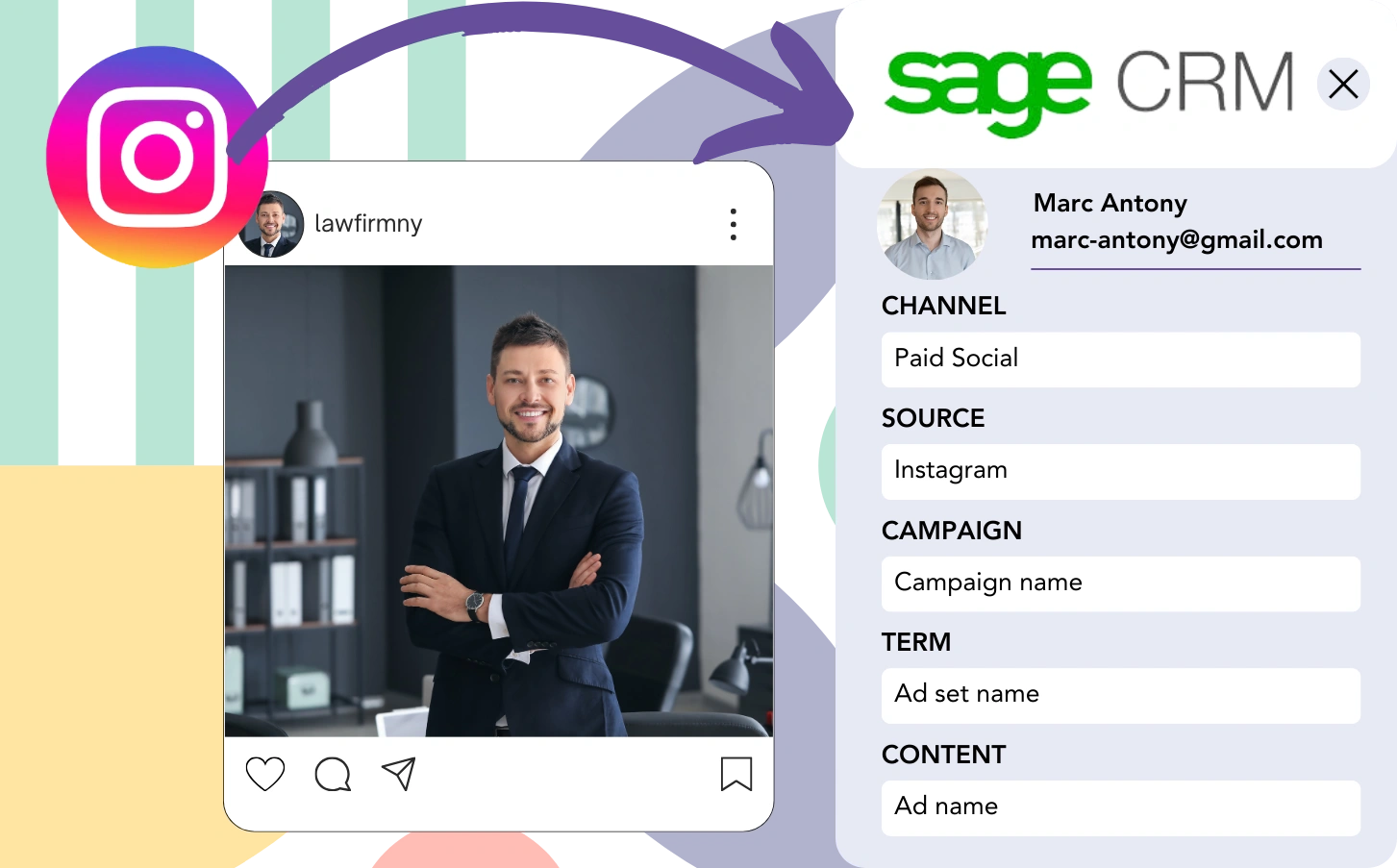You pull leads from Instagram into Sage CRM, but tracing each to its specific ad is unavailable. When these leads convert, connecting them back to an Instagram ad isn’t possible.
This lack of tracking restricts your ability to assess the success of your Instagram ads, leaving you uncertain about which ones drive conversions. This could lead to spending on ads without insight into their performance.
Luckily, a simple solution allows each lead to be traced back to its exact Instagram campaign, ad set, and ad origin.
Let’s work through the process together!
How to Track Instagram Ads in Sage CRM
Step 1: Add Leadsources in the head tag of your website

Step 2: Add the UTM parameters to your Instagram ads

Add UTM parameters to your ad URL to log Instagram campaign, ad set, and ad data. Here’s a guide:
UTM_medium=paidsocialUTM_source=instagramUTM_campaign=campaign-nameUTM_term=ad-set-nameUTM_content=ad-name
The final URL you should look like this:
https://www.yourdomain.com/?UTM_medium=paidsocial&UTM_source=instagram&UTM_campaign=campaign-name&UTM_term=ad-set-name&UTM_content=ad-nameKeep in mind that Leadsources records all lead source information, regardless of UTM parameter usage, ensuring detailed tracking for every lead.
Step 3: Add the hidden fields in your form
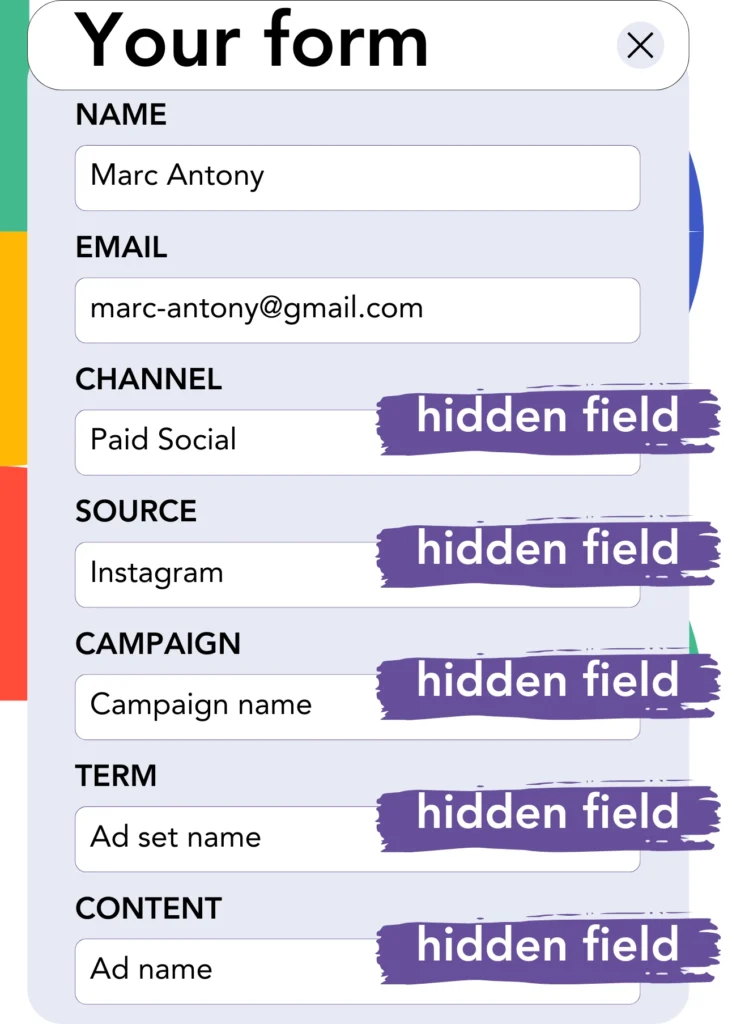
Hidden fields are sections of the form that remain invisible to users but can store data submitted with the form.
Leadsources maintains lead source data within the hidden fields of your form. Therefore, upon form submission by a lead, these fields are populated with Instagram ad data.
Leadsources works with all popular form builders. For complete instructions on integrating hidden fields into your form, follow this guide.
Step 4: Capture the Instagram ads data in Sage CRM
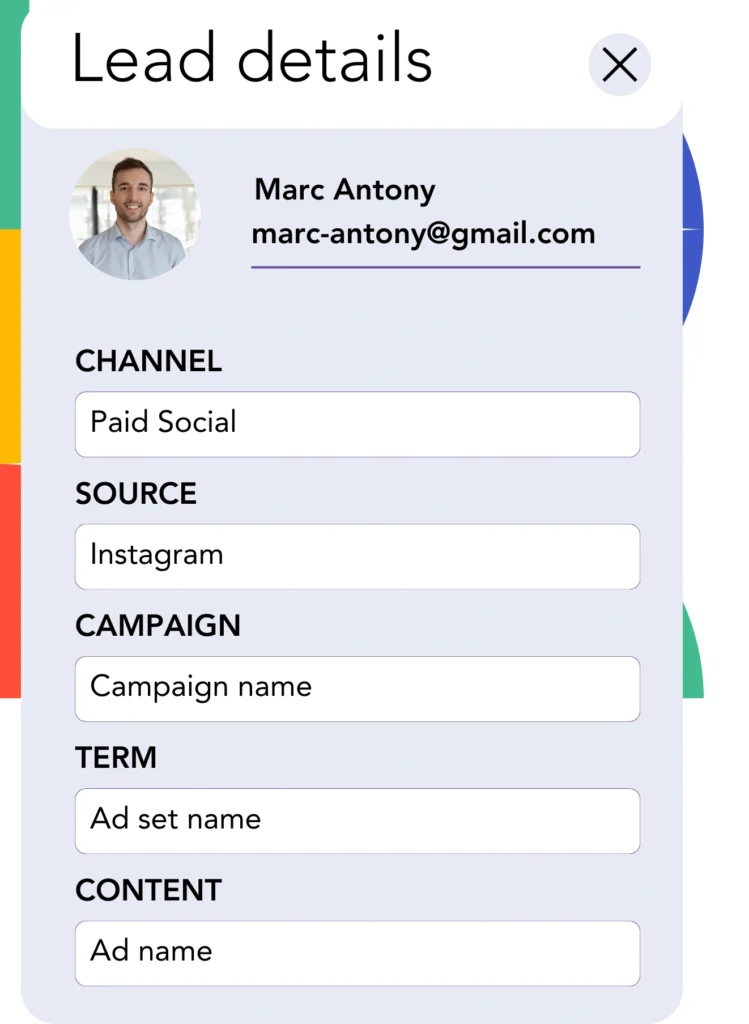
When users tap on your ads and reach your site, Leadsources extracts data related to the Instagram campaign, ad set, and ad, along with many more.
Leadsources populates Instagram ads data into the hidden fields of your form automatically.
Therefore, upon submitting the form, you can check the Instagram ad data and lead details in Sage CRM (This requires a connection with Sage CRM).
How does Leadsources work?
Each time a user clicks on your ads and reaches your site, Leadsources fetches Instagram ad data and fills it into the hidden fields of your form. Upon submission, this data is transferred to Sage CRM, along with the lead information you’ve gathered (like name and email).
Leadsources collects a full set of lead source data for each lead generated:
| Lead source data | Fetched automatically |
| Channel | ✅ |
| Source | ✅ |
| Campaign | ✅ OR use UTM_campaign |
| Content | UTM_content parameter is required |
| Term | UTM_term parameter is required |
| Landing page | ✅ |
| Landing page subfolder | ✅ |
As shown in the table above, even when UTM parameters are impractical—like organic sources such as Google search or Instagram bio links—Leadsources continues to capture some lead source data:
- Channel
- Source
- Campaign
- Landing page
- Landing page subfolder
In contrast to other software, Leadsources tracks lead source data across every marketing channel, both organic and paid.
Select a channel to inspect the lead source information that Leadsources fills in your form.
Performance reports: Lead, sales, and revenue by source
Tracking Instagram ads data within Sage CRM allows you to create performance reports, for instance:
- Leads, sales, and revenue by channel
- Leads, sales, and revenue by source
- Leads, sales, and revenue by campaign (aka. Instagram campaign)
- Leads, sales, and revenue by term (aka. Instagram ad set)
- Leads, sales, and revenue by content (aka. Instagram ad)
This assists you by readjusting your Instagram budget based on the campaigns, ad sets, and ads that are driving the most leads, sales, and revenue.
Let’s point out a few of the reports you can generate:
1. Lead source reports
Create performance reports that detail the leads generated through:
- Channel
- Source
- Campaign (aka. Instagram campaign)
- Term (aka. Instagram ad set)
- Content (aka. Instagram ad)
- Landing page
- Landing page subfolder
Example #1: Leads by channel
This report enables you to assess which channel generates the best leads.
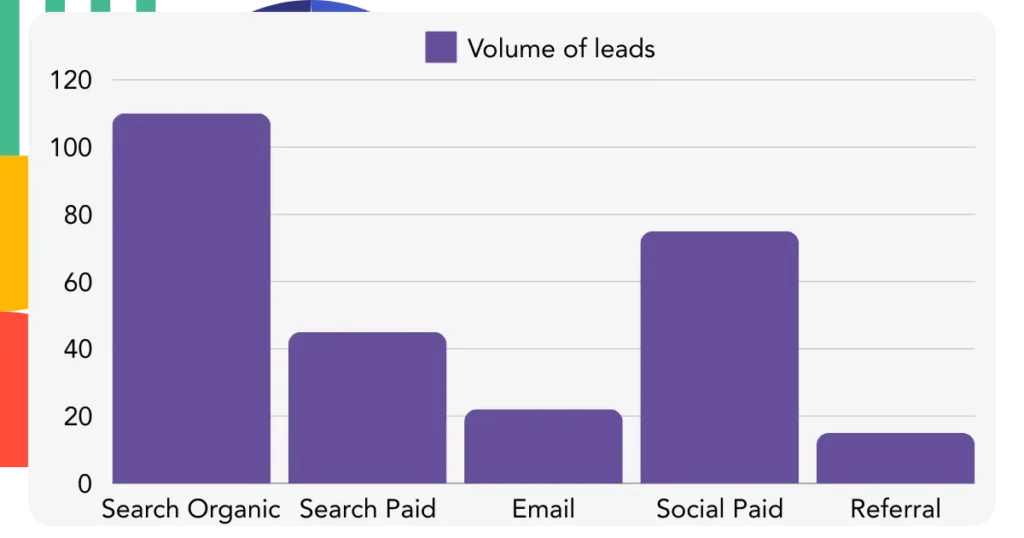
Example #2: Leads by Instagram campaign
You are now equipped to focus on a particular lead source (e.g., Instagram) and evaluate how many leads are produced by each Instagram campaign.
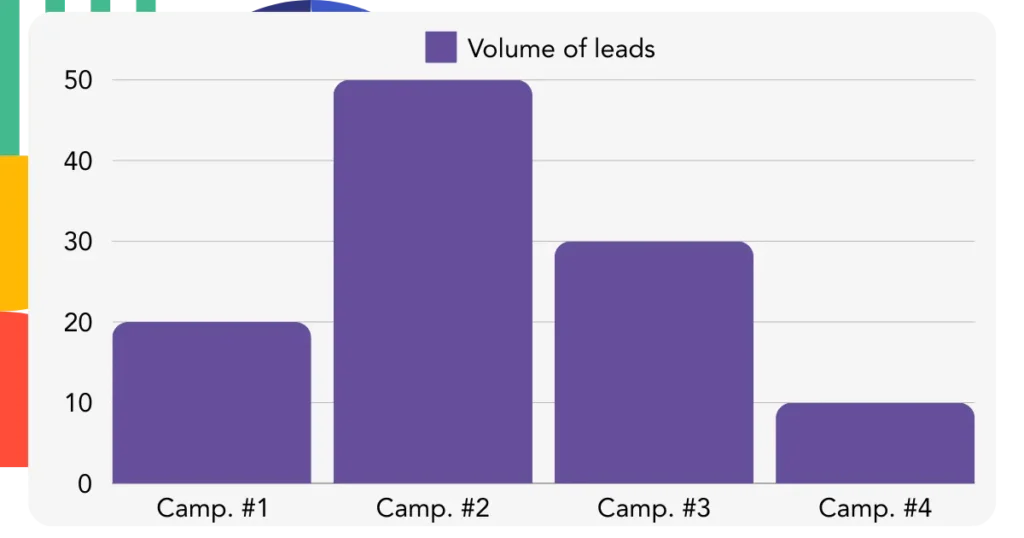
Example #3: Leads by Instagram ad
After identifying the Instagram campaign that drives the most leads, you can analyze which specific ad group or ad is effectively generating those results.
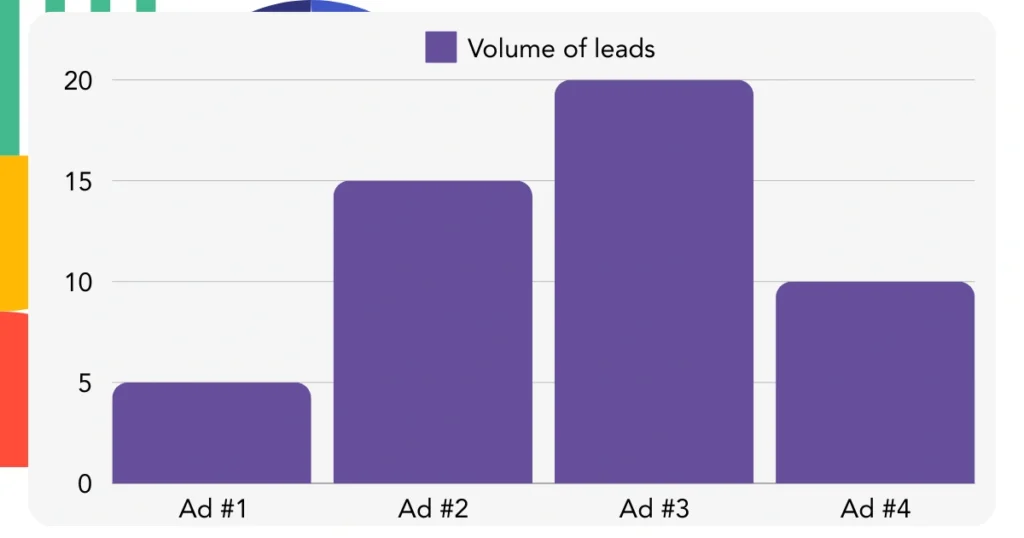
2. Sales and revenue source reports
Now that we understand which Instagram campaign, ad set, and ad yield our leads, it’s crucial to determine if these leads are resulting in sales and revenue.
For this strategy, link your leads to a CRM like Sage CRM. This connection lets you track sales and revenue from diverse channels, sources, Instagram campaigns, ad sets, ads, landing pages, and landing page subfolders.
With this information, you can shift your Instagram ad strategy to concentrate on the channels, sources, campaigns, ad sets, and ads that contribute the most to sales and revenue.
A selection of sales and revenue reports can be generated, including:
- Sales and revenue by channel
- Sales and revenue by source
- Sales and revenue by campaign
- Sales and revenue by term (e.g., Instagram ad set)
- Sales and revenue by content (e.g., Instagram ad)
- Sales and revenue by landing page
- Sales and revenue by landing page subfolder
Example Scenario:
| Channel | Search Paid | Social Paid |
|---|---|---|
| Leads | 50 | 75 |
| Sales | 5 | 6 |
| Average Order Value | $150 | $100 |
| Revenue | $750 | $600 |
Following the launch of ads on Google and Instagram, the preliminary “Leads by Channel” report indicated that Social Paid ads (Instagram) were more effective in generating leads than Search Paid ads.
However, an analysis of the sales and revenue data in Sage CRM revealed that the Search Paid channel brought in higher revenue with a lower number of leads compared to the Social Paid channel. As a result, you adjusted your budget to increase investments in the Search Paid channel.

